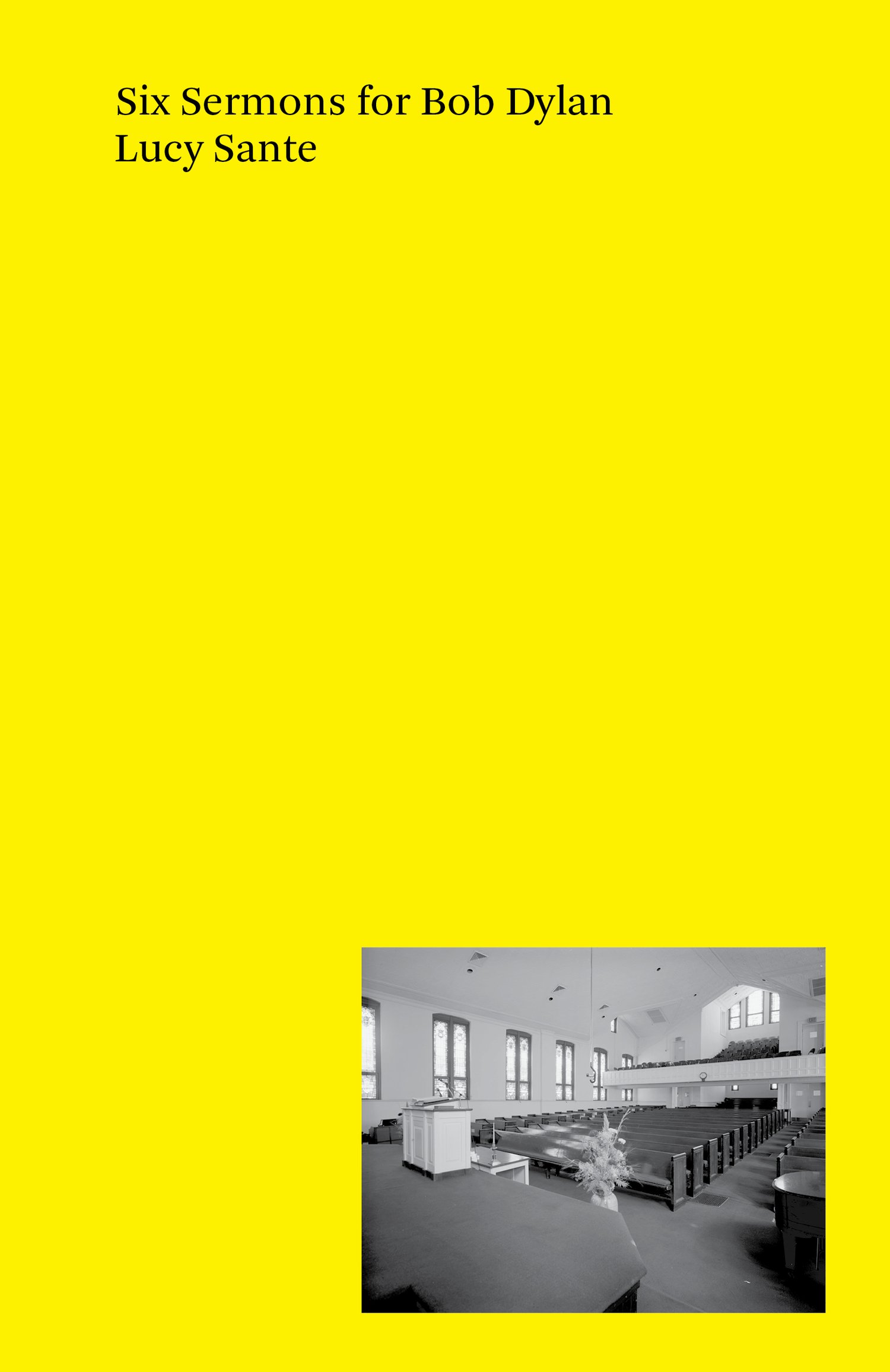
Lucy Sante, Six Sermons for Bob Dylan
£12.50
Tenement #15 / ISBN: 978-1-917304-01-6
60pp [Approx.] / 140 x 216mm
Edited by Dominic Jaeckle
Designed and typeset by Traven T. Croves
22.11.24
With an Afterword by Greil Marcus.
•
“In August 2016 I received an email from Jeff Rosen, Bob Dylan’s majordomo. I had been getting occasional writing assignments from Bob through Jeff for years, and they were extremely various: speeches, press kits, prefaces, a Buick commercial. Now he explained that he and Bob had been discussing a film project, to focus on his ‘Gospel Years,’ 1979-1980. They had some great footage—not the rather stiff performances intended for an unmade TV special, but the rougher takes made for pick-ups. Bob had the thought that he’d like to interrupt the footage with sermons delivered by an actor. Would I consider writing the sermons?
I gulped, but I said yes. What did I know about sermons? Barring the occasional funeral I hadn’t been to church since age thirteen, and what I could recall of the priests of my past was not exactly inspiring. I searched sermons online but found mostly dull plodding slabs of Midwestern mainstream-Protestant reasonableness. I searched my bookshelves for anything relevant and came up with Perry Miller's 1956 anthology The American Puritans, but their elegant plain seventeenth-century Dissenter prose did not suit the music. I also found Saved: The Gospel Speeches, transcriptions of the sermons Bob had actually issued from the stage in those years, edited by Clinton Heylin and published in Raymond Foye’s palm-sized Hanuman editions. They weren’t prose at all, but spontaneous exhortations and rambling homilies, full of doom and repentance, blood and thunder. I checked with Jeff, but no, Bob did not want those as a stylistic model.
Finally I realized what I should have known in the first place if it weren’t for my print bias: my sources had to be recorded sermons. After all, I had dozens on my iPod (RIP): Rev. J. M. Gates, Rev. D. C. Rice, Rev. A. W. Nix. These were Black, mostly Southern preachers of the 1920s and ‘30s, whose recorded sermons, often unaccompanied, handily outsold the blues issued on the same labels. I had never seriously listened to them one after the other. I remembered some of the more sensational bits, such as Rev. Gates’s ‘Death Might Be Your Santa Claus,’ or his ‘Atlanta gets her styles from New York, and New York gets her styles from Paris, and Paris gets her styles from Hell!’
But when I listened to the sermons one after another, the thing that struck me was their earnestness, their neighborliness. The secret of their success was that the preachers seemed to be addressing specific people, and that included you.”
(From Sante’s foreword to these texts.)
•
Edited and abridged versions of these sermons are delivered by Michael Shannon, as directed by Jennifer Lebeau, on the DVD included in the deluxe edition of Bob Dylan’s Trouble No More: The Bootleg Series Vol. 13—1979-1981 (2017); a film broadcast in the UK as an entry the BBC’s ongoing Arena series.
•
See here for a further word on this title.
•
Stickered editions will carry a cover adornment; Jet Lowe, Ebenezer Baptist Church, Martin Luther King, Jr. National Historic Site, 407 Auburn Avenue Northeast, Atlanta, Fulton County, GA. (INTERIOR, VIEW FROM BEHIND PULPIT, LOOKING TOWARD BALCONY), ℅ the Library of Congress.
•
Lucy Sante’s books include Low Life (Farrar, Straus and Giroux, 2003), Kill All Your Darlings (Verse Chorus Press, 2007), The Other Paris (Farrar Straus & Giroux, 2015), Maybe the People Would Be the Times (Verse Chorus Press, 2020), and the memoir, I Heard Her Call My Name (Heinemann, 2024).
Greil Marcus is the author of Lipstick Traces: A Secret History of the Twentieth Century (Harvard University Press, 1989). He contributed an introduction to the New York Review Books edition of Constance Rourke’s 1931 American Humor: A Study of the National Character. He was born in San Francisco and lives in Oakland.